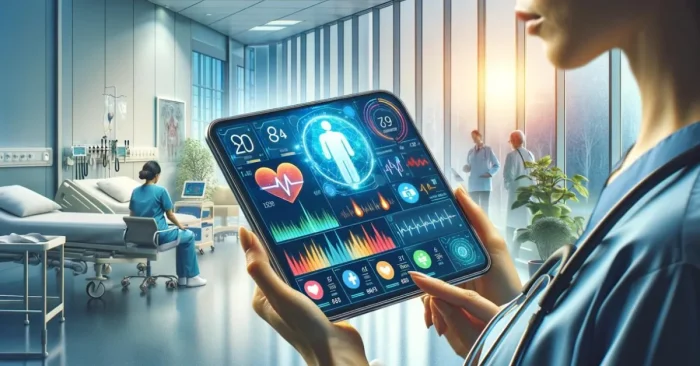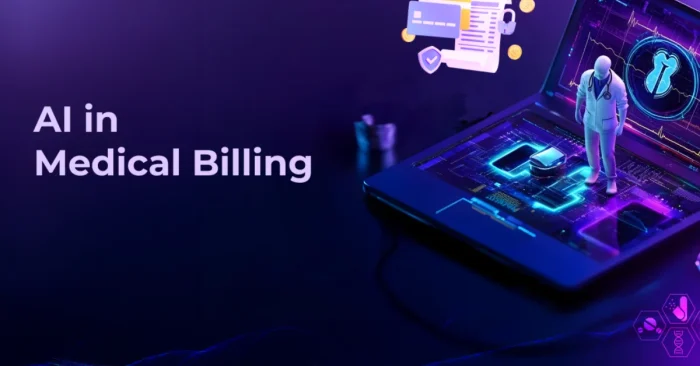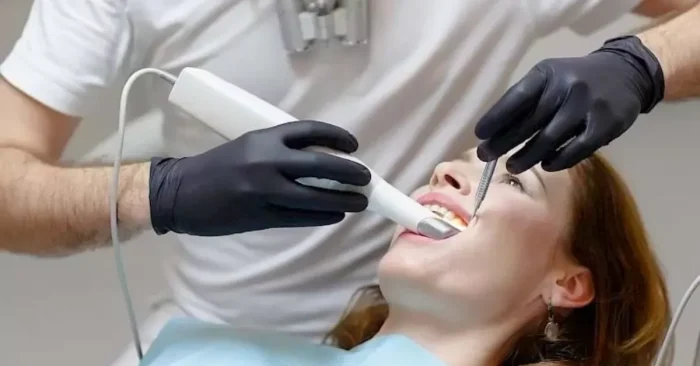Overview
AI tools for patient monitoring are revolutionizing healthcare by providing real-time tracking of patient health data, predicting risks, and assisting doctors with timely decisions. These systems collect and analyze information from wearable devices, medical sensors, and hospital records to detect abnormalities early. AI-driven monitoring reduces hospital readmissions, ensures personalized care, and improves patient safety. It is particularly valuable for managing chronic diseases, post-surgery recovery, and elderly care. With automation, predictive insights, and continuous supervision, AI enhances both hospital-based and remote healthcare, making treatment more efficient and accessible.
1. AI in Vital Signs Monitoring
AI monitors heart rate, blood pressure, oxygen levels, and temperature in real time. Continuous tracking ensures doctors receive instant alerts in case of abnormalities, allowing early interventions. Patients benefit from round-the-clock supervision without constant manual checks, improving overall healthcare outcomes significantly.
2. AI for Chronic Disease Management
Chronic diseases like diabetes, hypertension, and asthma require continuous monitoring. AI-powered platforms analyze long-term health data, predict possible complications, and suggest lifestyle adjustments. This reduces emergency visits and helps patients maintain stable health conditions under medical guidance.
3. AI in Post-Surgery Recovery
After surgery, patients need close monitoring to avoid complications. AI systems track vital signs, wound healing, and medication adherence. Predictive algorithms detect infections or unusual patterns early, ensuring timely medical attention and safer recovery at home or in hospitals.
4. AI for Remote Patient Monitoring
Wearable devices and AI-driven apps enable patients to be monitored outside hospitals. Doctors can access real-time data remotely, reducing unnecessary hospital visits. This approach is especially useful for elderly patients, rural communities, and those with mobility challenges.
5. AI in Predictive Healthcare Alerts
AI predicts possible health issues before they occur by analyzing patient history and real-time data. For example, it can warn of a potential heart attack or seizure. These proactive alerts save lives by allowing immediate preventive measures and medical action.
6. AI for Medication Adherence
AI reminders and monitoring systems ensure patients take medicines on time. Non-compliance is detected quickly, and caregivers are notified. By improving medication adherence, AI tools reduce complications and increase the effectiveness of prescribed treatments significantly.
7. AI in ICU and Emergency Care
Critical care units use AI to track multiple patients simultaneously. AI systems predict sudden changes in patient conditions, allowing doctors to act before emergencies worsen. This improves survival rates and supports faster, more accurate decision-making in life-threatening situations.
8. AI-Powered Wearables
Smartwatches, fitness trackers, and medical wearables use AI to provide health insights. They monitor daily activity, heart function, sleep patterns, and stress levels. AI algorithms analyze this data to recommend healthier routines and alert users to unusual conditions promptly.
9. AI in Elderly Care
AI-based monitoring tools help elderly patients live independently while ensuring safety. Fall detection, medication tracking, and emergency alerts keep caregivers informed. Continuous monitoring reduces hospitalization and provides peace of mind for families and healthcare providers alike.
10. AI for Personalized Patient Care
AI tailors monitoring and treatment to each patient’s unique condition. It recommends customized therapy plans, exercise routines, and dietary suggestions. This personalized approach improves recovery speed, enhances patient satisfaction, and ensures long-term health management effectively.
(FAQs)
Q1: Can AI tools replace doctors in patient monitoring?
No, AI assists doctors by providing real-time data and predictions, but medical expertise remains essential for treatment decisions.
Q2: Are AI monitoring systems safe for home use?
Yes, AI-powered wearables and apps are designed for safe and easy use, especially for chronic disease management and elderly care.
Q3: How does AI improve patient safety?
AI detects abnormalities early, sends instant alerts, and predicts risks, ensuring timely medical intervention to prevent complications.
Learn More About AI Course https://buhave.com/courses/learn/ai/






